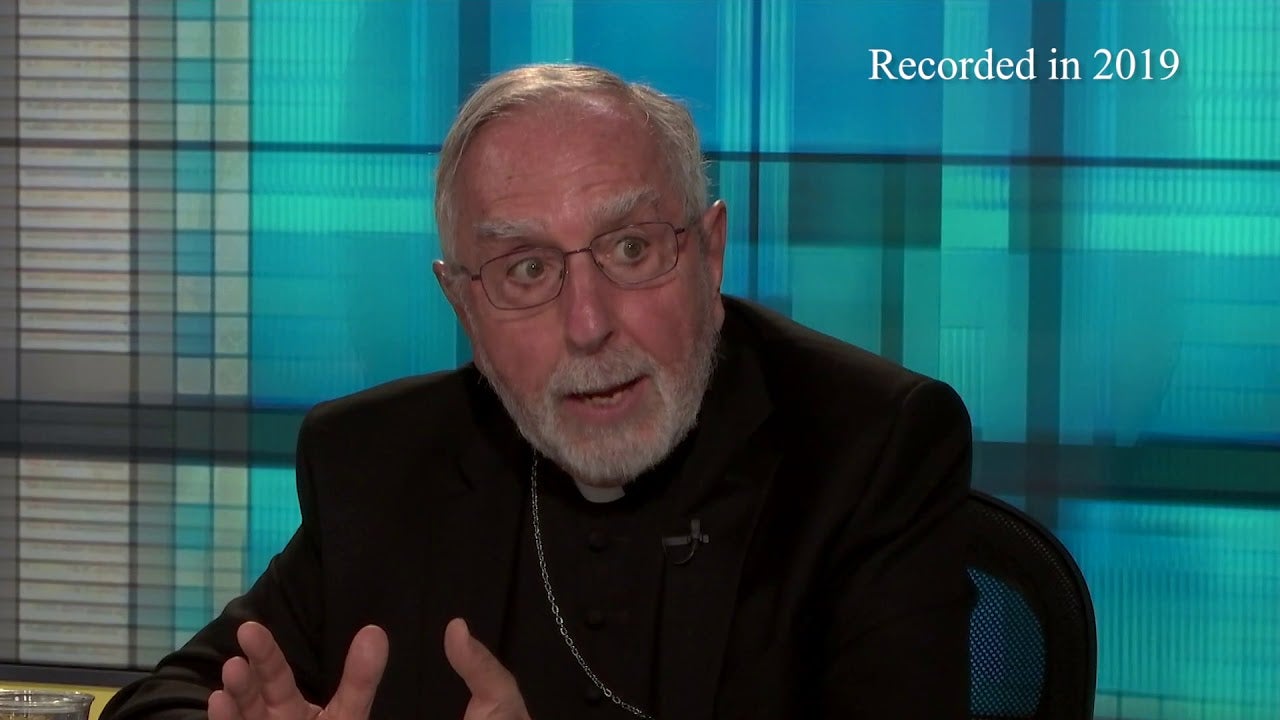
Certification for Ecclesial Ministry: Strengthening Lay Ministry
Subcommittee Chairman Bishop Gerald Kicanas describes how ministry formation standards strengthen and support the work of lay ministry leadership in the Church.
- Code of Canon Law no. 231 and Co-Workers in the Vineyard of the Lord: A Resource for Guiding the Development of Lay Ecclesial Ministry, p.33
If you are a Catholic lay minister, or a priest or deacon, seeking formation or certification for a specialized ministry role, we thank you for considering this important step in your formation. Whether you are seeking more information on how to do so in your arch/diocese or in a national ministry organization, we encourage you in that effort and appreciate your effort to become more skilled in your chosen service to the life of the Church.
Our USCCB Subcommittee on Certification for Ecclesial Ministry and Service works closely with such programs to provide guidance and approval for formation and certification standards, but we do not directly certify lay ecclesial ministers in a general sense, nor do we certify directly for particular ministry roles. Instead, you will want to seek out the ministry formation program in your own arch/diocese and/or one of the role-based certifications offered by national ministry organizations. Learn more about which arch/diocesan programs and national ministry organizations have certification opportunities approved by the USCCB through our subcommittee.
However, you may have additional questions. We will answer a few of them here.
Co-Workers in the Vineyard of the Lord, the USCCB statement from 2005 on lay ecclesial ministry, states:
- Co-Workers, p. 11
At the same time, certification is a formal process by which a professional organization or diocesan department assesses and verifies competencies of a candidate to carry out specific ministerial roles.
Thus, "lay ecclesial minister" is a generic category that includes many of the specific roles which may be certified based on standards and competencies. "Lay ecclesial minister" is not a specific role in itself, and thus can't be certified. The particular role - such as chaplain, parish catechetical leader, youth ministry leader, etc. - is the proper focus of certification.
We work with arch/diocesan bishops, program leaders, and national organization leaders who do certify ministers and who have asked us to review and approve their standards for doing so. The mandate of the USCCB Subcommittee on Certification for Ecclesial Ministry and Service is to review and approve the standards, competencies, and procedures used by arch/dioceses or national organizations to determine suitability of a candidate for certification. The USCCB provides this guidance and approval to affirm that the standards, competencies and procedures being used by the arch/diocese or national organization follow what are recognized to be best practices in ministry formation, as demonstrated by successful programs of a similar sort around the country and the significant input of bishops, clergy, lay ministers, educators and ministry professionals who have had a significant role in ministry formation.
Our subcommittee works with those arch/dioceses and organizations who have voluntarily approached us and said that they want us to review their certification standards and procedures for our approval. The subcommittee has not had the opportunity to work with every arch/diocese or national ministry organization. If your arch/diocese or organization is not on the list linked above, then the USCCB has not reviewed those standards. If you think it would be valuable for the USCCB to review certification standards for your arch/diocesan program or national organization, encourage the leader of your program or organization to reach out to us. We will be happy to speak with them.
We are always happy to share the resources that have been developed by the subcommittee, the committees and staff of the USCCB or our trusted partners to help anyone serving the church to grow in their ministry. Many of the certification standards and competencies we have approved are available upon request from us or one of our approved arch/dioceses or organizations. These competencies can be of benefit even for those not seeking certification. Furthermore, we are happy to refer you to one of the national organizations with whom we work, many of whom have a particular focus in ministry for their members (youth ministry, chaplaincy, prison ministries, catechetical ministry, parish-based leadership roles, etc.). The members of those organizations speak highly of the benefit of being connected to others in their area of ministry and are excellent professional ministry resources themselves.
Additionally, if you are an arch/diocesan leader or organizational leader, we are happy to set up a consultation with you to discuss ministry formation or certification needs, as well as other topics. Arch/diocesan leaders should make sure to also reach out to their own arch/bishop when asking for a consultation.
We welcome the opportunity to discuss with bishops, their representatives, or diocesan officers the process by which our subcommittee can review and approve certification standards. Here is some important initial information about the process, including how to reach out to us to take the next step.
Additionally, a list of arch/diocesan offices, national organizations of ecclesial ministers, and state Catholic Conferences with approved certification standards and procedures is available here.